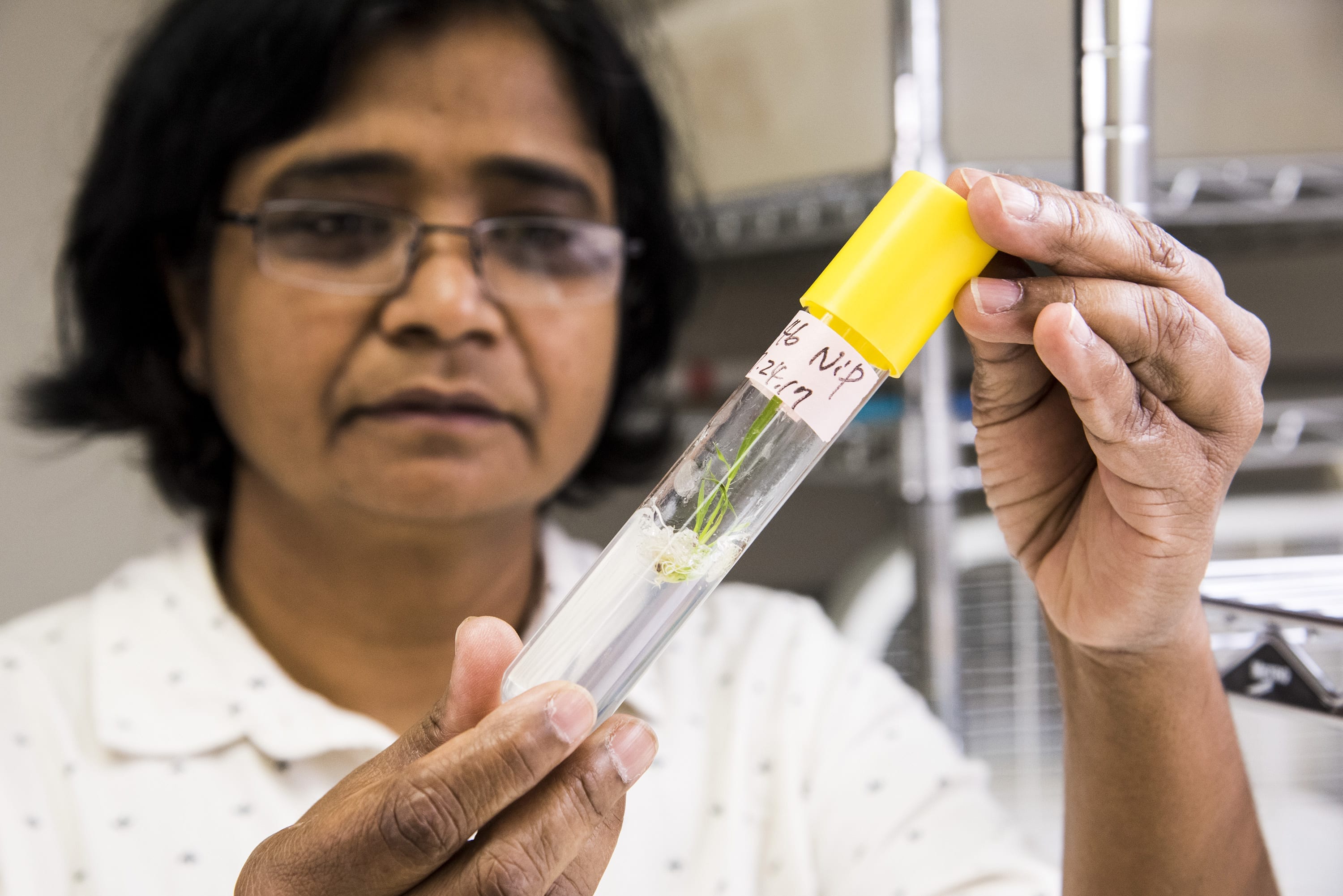Researchers Add Gene Editing to Rice Research Toolbox

The Problem
Variety development is a core effort in the Division of Agriculture research. The need for new breeding material with important genetic traits in environmental tolerances, disease resistance and food quality and yield is never-ending. But it can take thousands of generations and decades of painstaking work to move desired genetic traits into available breeding stock.
The Research
Vibha Srivastava, a Division of Agriculture biotechnologist specializing in plant genomics, is adapting “CRISPR,” a gene editing tool, to develop a process to move useful genetic traits into rice breeding genomes faster, more easily and more precisely. The technique works by “copying and pasting” useful traits from wild or distant relatives of rice into existing breeding stock.
Gene editing technology was developed in 2012 and has been studied more broadly by Srivastava and other scientists around the world since then. Building on her background in biotechnology development, Srivastava is learning how to apply the technology to rice breeding and test its effectiveness.
Gene editing is not genetic modification, in which genetic code from one organism is inserted into another organism. Rather, gene editing tries to induce useful genetic mutations.
A plant’s genetic traits are developed through mutations that occur naturally in response to environmental stresses. Useful traits that improve a plant’s survivability are stored in its genes. Gene editing uses that information from a wild plant to try to induce the same mutation in breeding stock.
The Bottom Line
Gene editing promises to be a useful tool that can improve the precision and accelerate the process of moving useful new genetic traits into rice breeding stocks. Srivastava’s goal is to have the technology and proven methods for using it ready when plant breeders need it.
The Researcher

Vibha Srivastava
Plant Geneticist
Department of Crop, Soil, and Environmental Sciences
Srivastava got her bachelor of science degree in chemistry from Dayalbagh Educational Institute in Agra, India; her master of science in biochemistry from the G.B. Pant University of Agriculture and Technology in Pantnagar, India; and her Ph.D. in plant biotechnology from Jawaharlal Nehru University, New Delhi, India. She held post-doctoral positions at the University of California, Berkley, and the University of Florida, Gainesville, and was a visiting research fellow at Freie Universität, West Berlin.
Research interests include plant biotechnology and genomics. Her research focus is to develop transgenic techniques for precise genetic modification using recombinases, nucleases and gene editing reagents.
»
